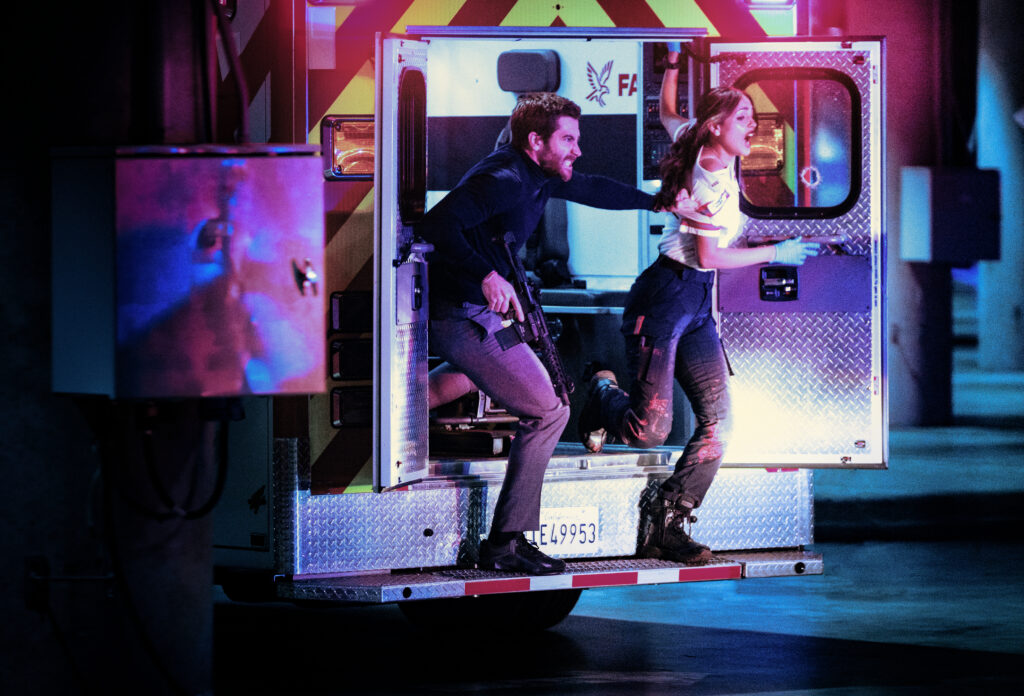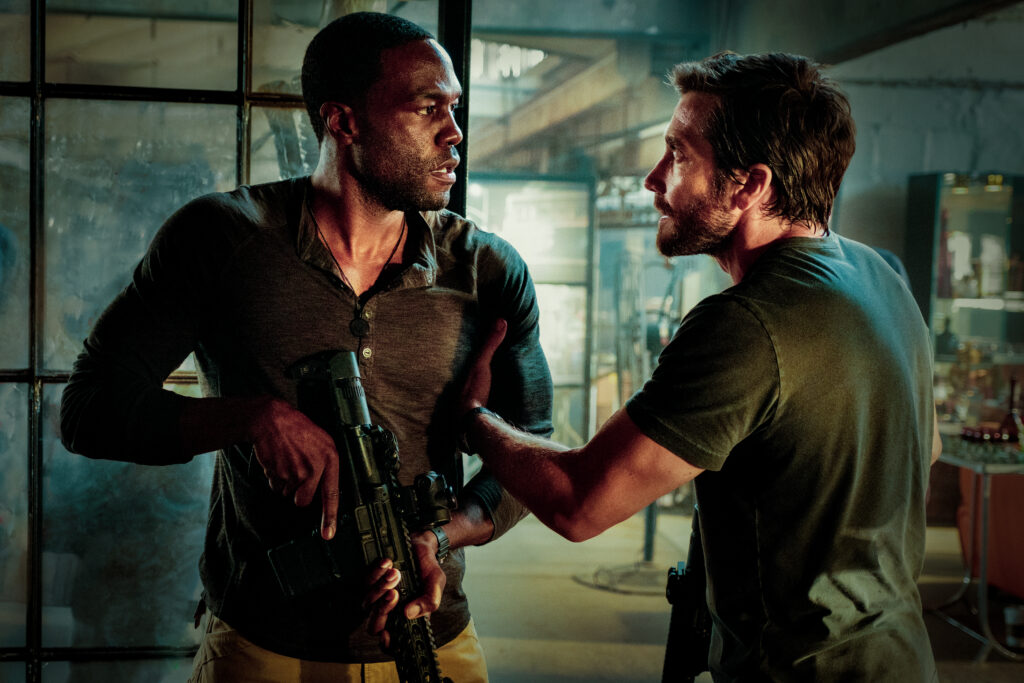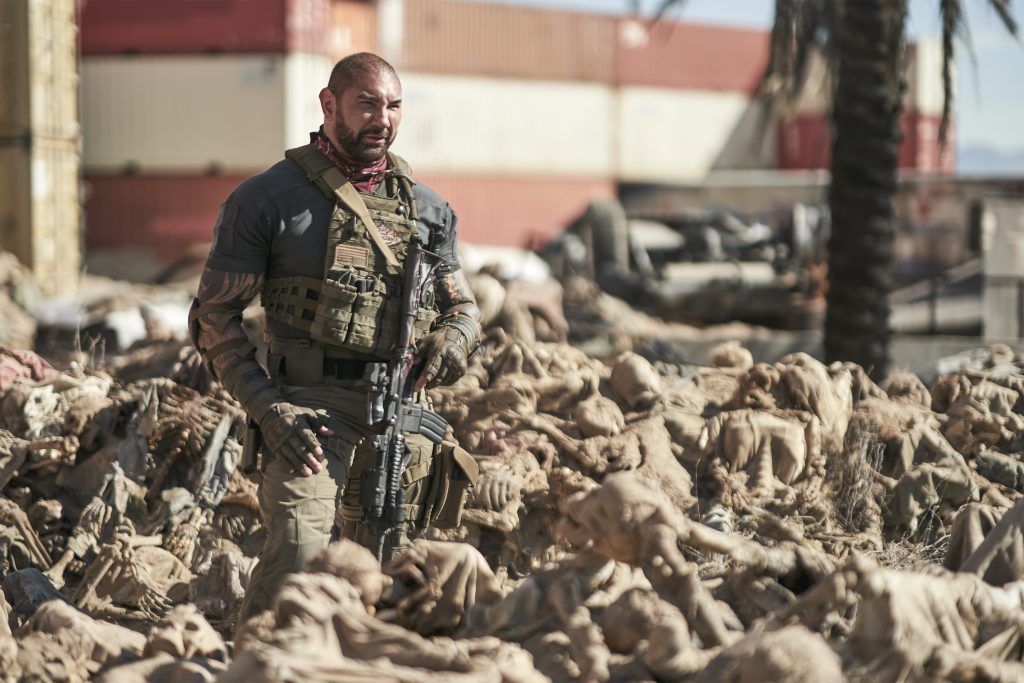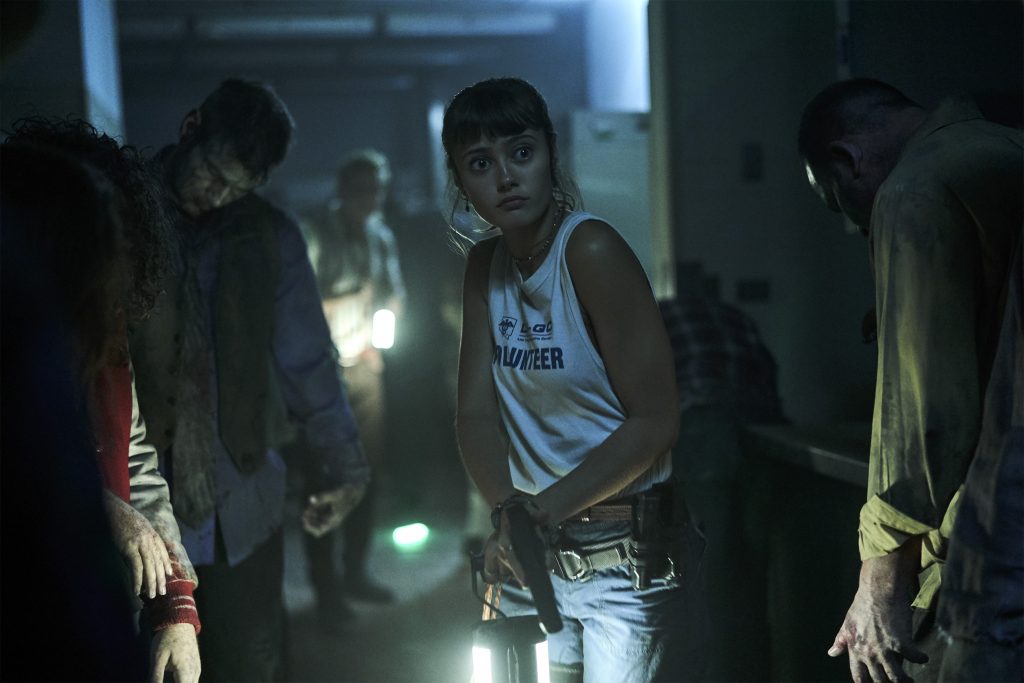July 12, 2022
by Carla Hay

Directed by Olivia Newman
Culture Representation: Taking place in North Carolina, from 1952 to the early 2020s, the dramatic film “Where the Crawdads Sing” features a nearly all-white cast of characters (with a few African Americans) representing the working-class and middle-class.
Culture Clash: In 1970, a 24-year-old woman goes on trial for murdering her ex-boyfriend, and her past as a poor and abandoned child is used against her in the trial.
Culture Audience: “Where the Crawdads Sing” will appeal mainly to people who are fans of the book on which the movie is based, as well as to people who are interested in stories about how people of different social classes are treated in society.

“Where the Crawdads Sing” has a lot of timeline jumping that will either annoy or intrigue viewers. The movie (which starts off very slow) gets better as it goes along and is elevated by a distinctive lead performance by Daisy Edgar-Jones. Fans of Delia Owens’ 2018 novel “Where the Crawdads Sing” should be satisfied with this cinematic adaptation, while other people who haven’t read the book might have more mixed reactions.
Directed by Olivia Newman and written by Lucy Alibar, the movie “Where the Crawdads Sing” takes on the challenge of telling a story that spans several decades. Just like in the book, the movie takes place in North Carolina. (The movie was actually filmed in New Orleans.) However, the timelines in the book and movie are slightly different. In the book, the timeline goes from 1952 to 2010, whereas the movie’s timeline goes from 1952 to the early 2020s.
The beginning of the film has some editing that might confuse some viewers. The opening scene takes place in the fictional coastal town of Barkley Cove, North Carolina, on the morning of October 30, 1969. Two boys riding their bicycles near a swamp have discovered the body of Chase Andrews (played by Harris Dickinson) underneath a fire tower. At the time of his death, Chase was in his mid-20s and a manager at a local auto dealership.
A medical examination shows that Chase banged his head from falling down the tower, and this head injury was fatal. However, police investigators have found no fingerprints nearby on the tower. And so, they’ve come the conclusion that Chase’s death was not an accident or suicide, and that whoever murdered him covered up the crime by wiping away fingerprints and getting rid of other evidence.
The movie then abruptly cuts to 23-year-old Kya Clark (played by Edgar-Jones) being chased down by law enforcement and put in jail. Inexplicably, a cat gets into her jail cell, and Kya cuddles with the cat for the night until the cat is taken away from her. Kya’s arrest for Chase’s murder is the talk of the town. Kya has a reputation for being a mysterious loner. And because she grew up poor, some people automatically think she’s trashy.
The evidence against Kya is very circumstantial. Kya does not have an alibi during the time frame (midnight to 2 a.m.) that investigators estimate was when Chase died on October 30, 1969. Not long before Chase died, he and Kya were seen having a fight outside that got violent. A witness saw Kya threaten to kill Chase if he ever came near her again. People close to Chase knew that he always wore a shell necklace that Kya had given to him, but the shell necklace was missing when his body was found.
On the night of Chase’s death, Kya was seen in her boat near the water tower. Kya denies it. She claims she was on a short business trip to see a book publisher in Greenville, North Carolina, and that she didn’t return to Barkley Cove until after Chase’s death. Witnesses say that they saw Kya leave and return from her trip by bus. However, she has no proof of where she was between midnight to 2 a.m. on October 30, 1969.
At a local bar, a retired attorney named Tom Milton (played by David Strathairn) is having a conversation with a few other locals about the case. Tom comments, “I’m retired. It’s not my business anymore.” But then, in another example of the movie’s not-so-great editing in the beginning of the film, Tom is then shown meeting with Kya and telling her that he wants to be her defense attorney.
The movie never bothers to explain how and why Tom changed his mind about coming out of retirement to represent Kya in this murder case. Very little is a told about Tom’s trial strategy for the case, or what kind of experience/background he has as a criminal defense attorney. If people are expecting scenes where Tom and Kya have meetings to discuss the case, forget it. Those scenes aren’t in the movie, except for a brief discussion where Kya tells Tom in no uncertain terms that she won’t take a plea bargain, which would have given her an approximate 10-year prison sentence.
What the movie does show are numerous flashbacks about what happened in Kya’s life before she went on trial for Chase’s murder, as well as riveting scenes from the trial that began in 1970. These flashbacks are not in chronological order, but the movie at least does show on screen the year in which a scene is supposed to take place. Viewers who are not paying full attention to “Where the Crawdads Sing” when watching the movie might miss some crucial details and might get confused.
Kya’s birth name is actually Catherine Danielle Clark. She is the youngest of five children. And she has lived in Barkley Cove her entire life, in an isolated house near the marsh. Her unnamed parents (played by Garret Dillahunt and Ahna O’Reilly) have a troubled marriage because Kya’s father is a violent alcoholic, who often beats his wife and kids.
When Kya was 6 years old (played by Jojo Regina), her mother suddenly abandoned the family and never came back. Kya actually saw her mother leave with a suitcase, so the trauma of this memory haunts Kya. One by one, Kya’s older siblings—sister Missy, brother Murphy (aka Murph), sister Mandy and brother Jodie—leave the household. Jodie is closest in age to Kya, so his departure hurts Kya the most.
In the movie, Will Bundon portrays a young Jodie, while Logan Macrae plays the teenage/adult Jodie. Toby Nichols portrays teenage/young adult Murph. Emma Willoughby (also known as Emma Kathryn Coleman) portrays teenage/young adult Missy. Adeleine Whittle portrays teenage/young adult Mandy. All of these siblings except for Jodie (who comes back to Barkley Cove years later) remain distant from Kya.
Kya is about 12 or 13 years old when she’s the only child left to live with her father. She still fears him, but she finds that he treats her better now that he doesn’t have to take care of so many kids. He’s also eased up on drinking alcohol.
However, he’s extremely bitter about his wife’s abandonment. When Kya’s mother sends a letter, Kya’s father angrily burns the letter in front of Kya. He’s also so enraged that he burns everything that reminds him of his wife.
Kya’s father has a knapsack of shells and feathers. After Kya’s mother left the family, Kya began using her mother’s watercolor paints to paint these shells and feathers. Kya’s talent for drawing art and her fascination with shells and feathers become major parts of the story.
As a child, Kya is often left alone for days when her father goes on gambling binges. And after one of these trips away, Kya’s father never comes back. She learns to fend for herself by catching and growing her own food. She also sells some of her food at the local general store, which is owned an operated by a friendly couple named Jumpin’ (played by Sterling Macer Jr.) and Mabel (played by Michael Hyatt), who have mutual respect for Kya.
Jumpin’ and Mabel know that Kya has been abandoned by her entire family, but they don’t want to report her to child welfare authorities because she is self-sufficient and isn’t causing any trouble. Kya is able to dodge any social services workers by hiding in the marsh if any authorities go to the home to visit. She gets the unflattering nickname Marsh Girl from people who know about her.
For most of her childhood, Kya is illiterate. On the one day she goes to school, she is taunted and laughed at by classmates for spelling the word “dog” as “god.” Kya runs away from the school and never goes back.
As a child, Kya briefly meets a boy around her age named Tate (played by Luke David Blumm), who is a friend of Jodie’s. When Kya is in her late teens and living on her own, Tate (played by Taylor John Smith) comes back into Kya’s life when she finds out he’s been leaving little gifts for her, such as booklets and supplies. Tate offers to teach Kya how to read and write when she finds out that she’s illiterate.
Just like Kya, Tate also comes from a working-class background and has a family tragedy that haunts him. His father is a shrimper. Tate’s mother and sister were killed in a car accident in Asheville, North Carolina. Tate feels tremendous guilt about their deaths because he believes that his mother and sister were in Asheville to get him a bicycle as a birthday gift.
Eventually, Tate and Kya become romantically involved with each other. However, their romance comes to an abrupt end when Tate goes away to college to pursue his dream of becoming a biologist. Before going away, Tate promised to keep in touch with Kya, but he never does.
Feeling abandoned and vulnerable, Kya ends up dating Chase, who ardently pursues her. He showers her with compliments and eventually promises that he will take care of her. However, there are some red flags about Chase, such as he doesn’t want to introduce Kya to his family. He also seems a little jealous that Kya is thinking about making money by selling her art as book illustrations.
Kya does indeed end up having a volatile relationship with Chase, which is why she’s the only suspect in his murder. What “Where the Crawdads Sing” does well is show how people who are abuse survivors see life in a different way, because they are often “on guard” or in “survival” mode. Kya’s experiences as an abuse survivor have a lot to do with the decisions that she makes in her life.
Just as in the book, the movie shows the outcome of the trial and who is guilty of Chase’s murder. How much people like the movie will depend on how much they’re engaged in Edgar-Jones’ performance. All of the other cast members are perfectly fine in their roles, but Edgar-Jones is utterly convincing in her role as this tortured soul, who doesn’t want people to see her as a victim. “Where the Crawdads Sing” certainly covers a lot of issues that have to do with how different social classes are treated and perceived, but the movie is also about not judging people by where they came from but who they are now.
Columbia Pictures and 3000 Pictures will release “Where the Crawdads Sing” in U.S. cinemas on July 15, 2022.




